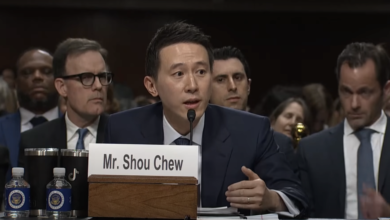On May 21, the Senate unanimously passed—with the full support of the Obama administration—the Detainee Photographic Records Protection Act of 2009 as an attachment to a war-spending bill. The House has yet to vote on the law.
|
Though the administration says that releasing the photos would put the people of the United States at risk, this is a lie. The sole purpose of the bill is to suppress evidence of torture carried out by war criminals in the Bush administration and to prevent victims and their families from achieving justice.
In May, the New York federal appeals court ordered the release of photographs depicting the abuse of “terrorist” suspects held in Iraq and Afghanistan.
On May 28, the Justice Department, under orders from President Obama, promised to challenge that appeals court ruling.
In practice, the Obama administration has greatly expanded protection for civil liberties violations committed by Washington and the Pentagon, both under previous administrations and into the future. For example, the administration has widened Washington’s defense of the policies of Bush-era warrant-less wiretapping, by ordering virtually all wiretap documents off limits.
The administration is currently ignoring an April court-ordered release of National Security Administration documents regarding the agency’s spying on an Arab American humanitarian organization in 2004.
President Obama claims to be committed to “an unprecedented level of openness.” At one time, he ordered the release of some of the photographs at issue by May 28.
In an attempt to put forward an appearance of breaking away from the Bush administration’s policies, Obama has announced the formation of a task force to review government policies on the disclosure of information, which is being lead by Attorney General Eric H. Holder Jr. and Homeland Security Secretary Janet Napolitano. Obama has even proposed the creation of a National Declassification Center that would control the disclosure of information to the public when “appropriate.”
But the reality of the new administration’s actions speak for itself: The Detainee Photographic Records Protection Act of 2009 would hide from the public some of the most horrid violations of human rights committed by the Bush administration. While making proclamations about openness, the Obama administration was ready not only to support legislation promoting secrecy and protection for torturers, but also made threats to vigorously challenge the Freedom of Information Act suit filed by the American Civil Liberties Union in the Supreme Court.
It is important to recognize Obama’s simultaneous promise of future openness and his immediate support for the Detainee Photographic Records Protection Act for what it is: a blatant attempt at covering up the racism and dehumanization that has been at the foundation of the occupation of Afghanistan and Iraq.
The reason for the flip-flop by the White House is that the Pentagon generals demanded no more revelations of the crimes committed by Pentagon and CIA torturers. They used the excuse that it would put more U.S. soldiers and marines in danger because of the widespread resistance that the photos would generate. That’s a tired joke. If the brass cared about the soldiers’ lives, they would remove them from Iraq and Afghanistan instead of maintaining a colonial-type occupation.
Obama, the candidate, promised change for his electoral base. As the CEO of the military-industrial complex, however, he yields before the commands of the Pentagon brass.
Justice demands a release of all materials pertaining to the detention and torture of individuals captured since September 11, 2001. Those who ordered this barbaric treatment should be indicted and prosecuted for their criminal acts.







